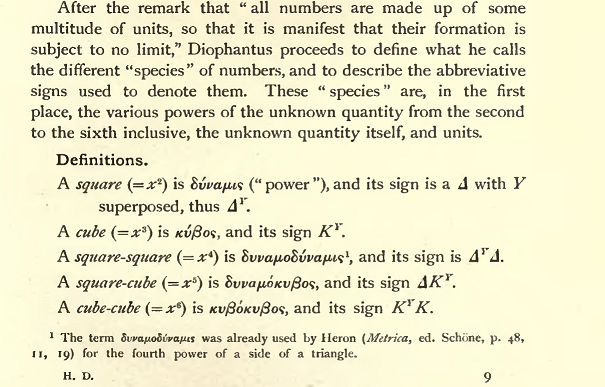The first definition of the powers beyond the third is probably in Diophantus' Arithmetica (written somewhere from 100 BC to 300 AD).
In the introduction to that work, he defines fourth powers ("dynamodynameis", lit. "square-squares"), fifth powers ("dynamokuboi", lit. "square-cubes"), and sixth powers ("kubokuboi", lit. "cube-cubes"). Throughout the course of the work, he uses them a lot. Also, he assigns them no geometrical significance whatsoever, just as he doesn't think of squares and cubes themselves in a geometric way; e.g., he sees no problem in adding the square of the unknown to a constant, etc.
Edit: I checked in Sir Thomas Heath's great treatise on Diophantus. Apparently, Heron used the same term for the fourth power as Diophantus. Since Diophantus' dates are somewhat uncertain, he may or may not have been anticipated by Heron. A screenshot from Heath's book is included.

